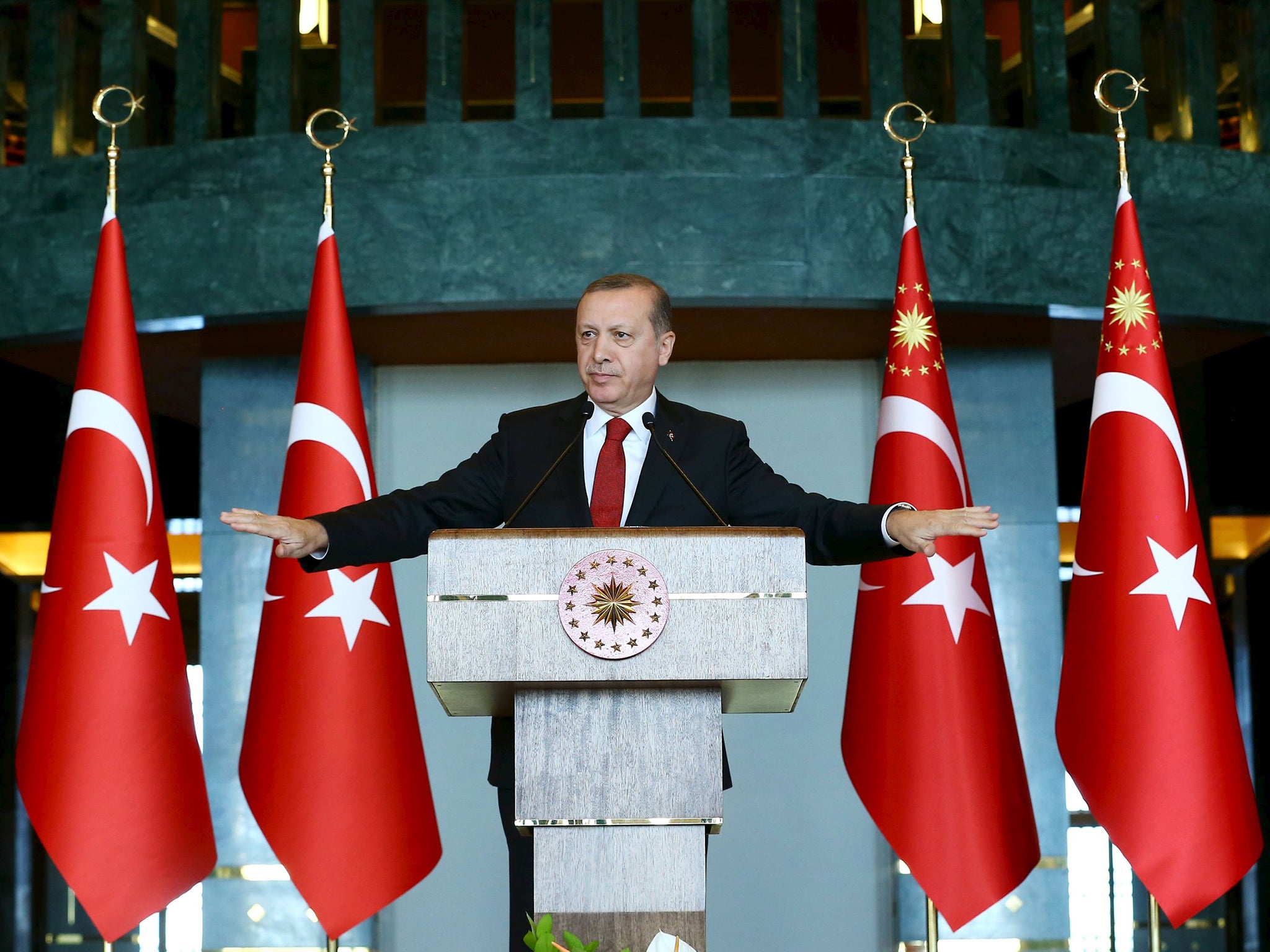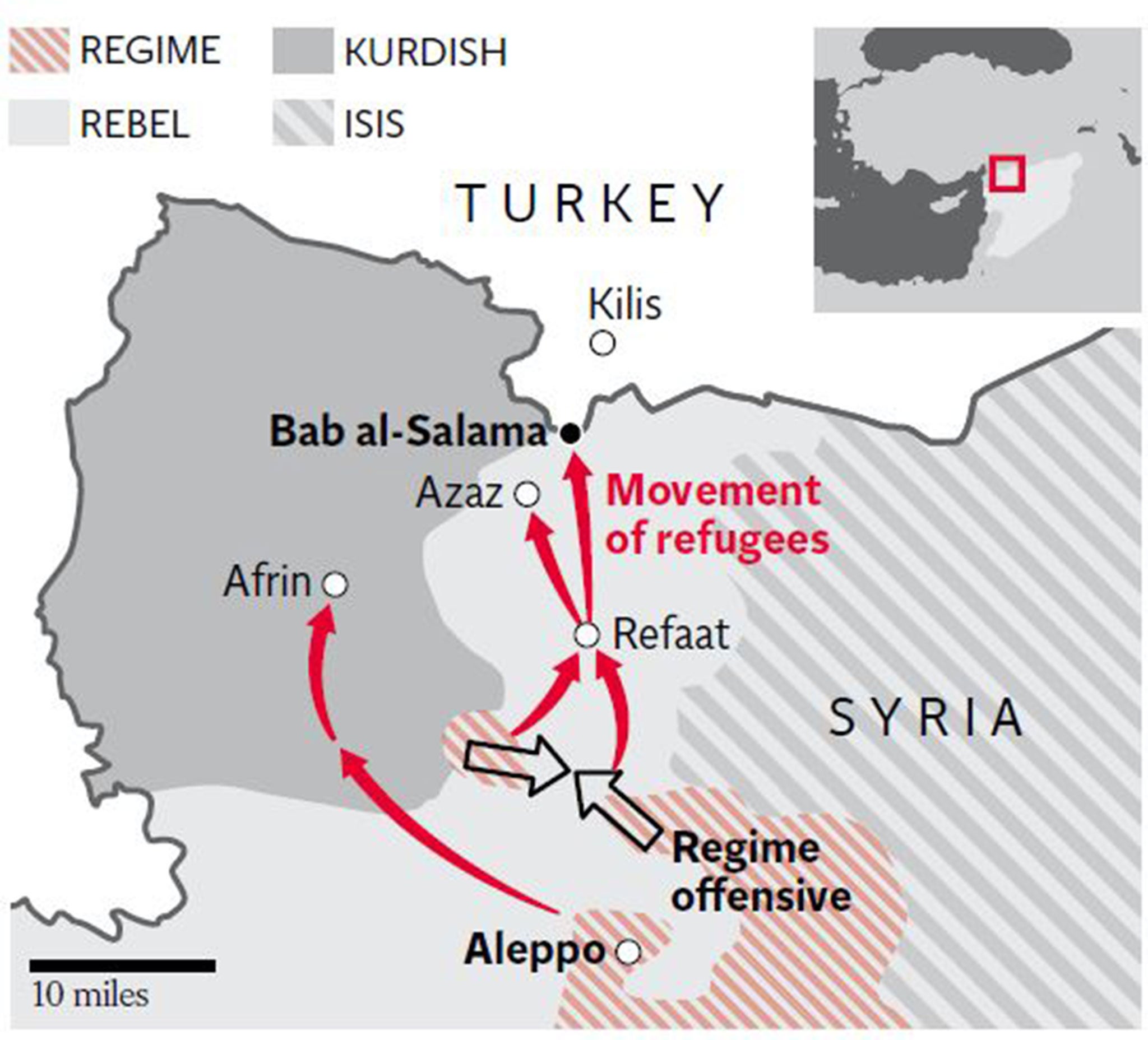Turkey says letting it join the EU would help solve the refugee crisis
Turkey is home to three million refugee and has a border with Syria

Turkey should be allowed to join the European Union in order to help solve the Syrian refugee crisis happening on its borders, the country has said.
Cem Işik, Turkey’s deputy ambassador to Britain, said the country being barred from the EU had contributed to the international migration problems.
The country has been an official candidate for EU membership since 1999, with negotiations about accession launched in 2005 – but progress has been very slow.
“Turkey joining the European Union is a strategic objective – it’s being going on for decades,” Mr Işik told BBC Radio 4’s Today programme.
“For years the EU was reluctant to take on Turkey as a member state because it didn’t want problems relating to Iraq and Syria at its border – now you can see how short-sighted that was.”
Mr Işik was asked whether Turkey was blackmailing Europe into letting it join the EU. He said: “Turkey is not blackmailing Europe but it’s disheartening to see that Europe only remembered Turkey after the migrant crisis last summer.”

Millions of refugees and migrants are passing through Turkey, which has opened its southern border with Syria for humanitarian purposes.
Turkey has allowed refugees to transit through its territory to move towards Europe – with president Erdoğan last month threatening to use buses to send more people to the EU.
Sitting on the edge of the Syrian conflict zone, the country home to three million refuges but says aid promised by the EU to help care for them has not yet materialised.
The latest call to join comes amid an outcry in Europe over a crackdown on press freedom by the country’s Government which is expected to delay accession even further.
This weekend the European Enlargement Commissioner Johannes Hahn said Turkey was jepordising its future in the EU with the authoritarian policy.
Martin Schulz, the European Parliament President, also warned that the Government takeover of the Zaman opposition newspaper was “yet another blow to press freedom” in the region.
The deputy ambassador however defended his Government’s actions.
“When you look at who is in prison for whatever purposes you will see there are people in there for murder, people in there for espionage,” he said.

Long-standing roadblocks to Turkey’s accession include refusing to recognise the Republic of Cyprus, which is an EU member state, poor relations with Greece, and the consistent opposition of Germany.
The strong role the army plays in the country’s constitution and the fact most of the country is in Asia has also been subject a subject of concern.
Britain has however long supported Turkey accession to the EU. In 2010 David Cameron said he was “angry” at the slow pace of negotiations.
“A European Union without Turkey at its heart is not stronger but weaker... not more secure but less... not richer but poorer,” he said at the time.
The previous Labour government also backed Turkish accession.
Turkey has a fast growing population of 75 million, making it almost as large as Germany and bigger than Britain or France.
It would be the second largest EU member state and likely shift the balance of power in Europe.
Join our commenting forum
Join thought-provoking conversations, follow other Independent readers and see their replies
Comments
Bookmark popover
Removed from bookmarks